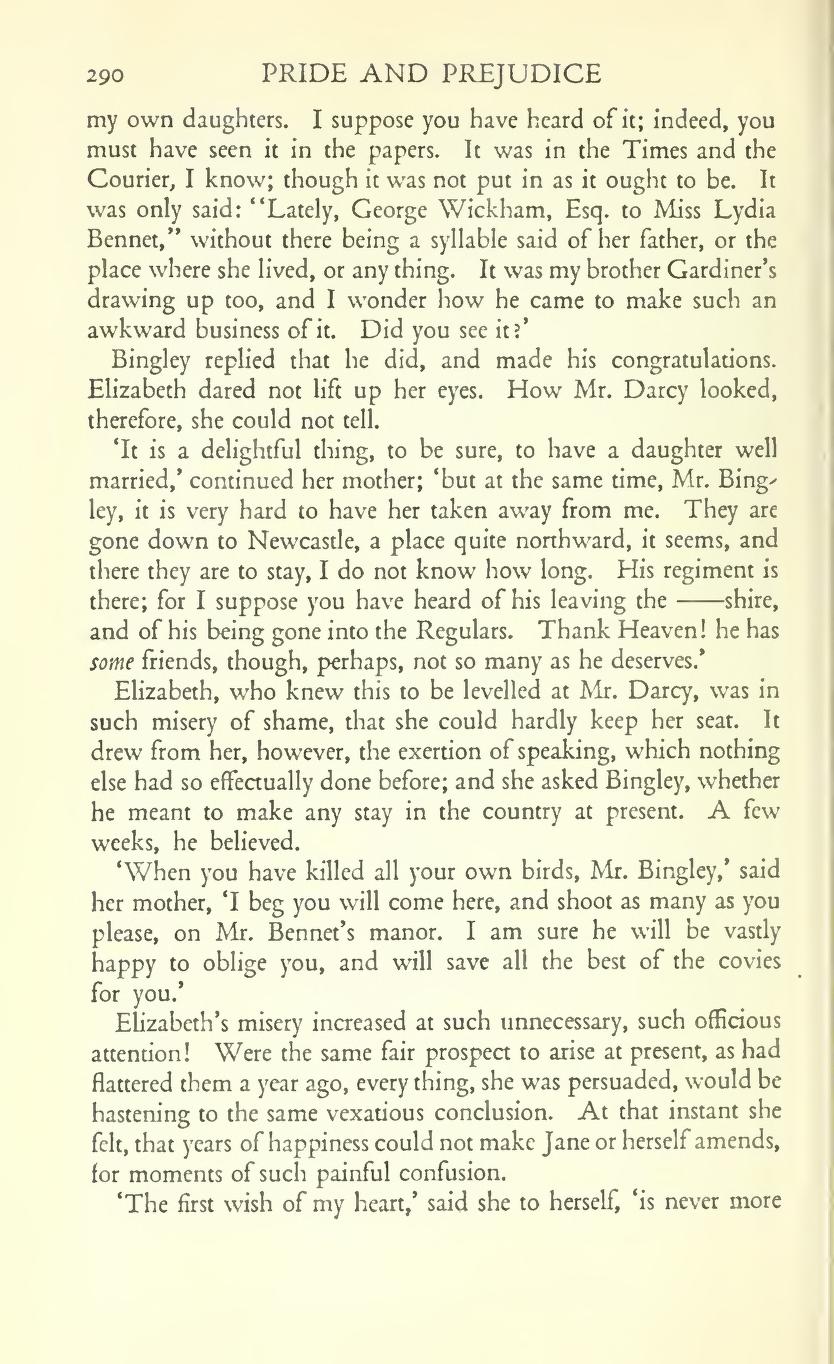 ............prev.....................next
............prev.....................next{{prxprp290.jpg}} || 290 PRIDE AND PREJUDICE ||
my own daughters. I suppose you have heard of it; indeed, you
must have seen it in the papers. It was in the Times and the
Courier, I know; though it was not put in as it ought to be. It
was only said: "Lately, George Wickham, Esq. to Miss Lydia
Bennet," without there being a syllable said of her father, or the
place where she lived, or any thing. It was my brother Gardiner's
drawing up too, and I wonder how he came to make such an
awkward business of it. Did you see it?'
Bingley replied that he did, and made his congratulations.
Elizabeth dared not lift up her eyes. How Mr. Darcy looked,
therefore, she could not tell.
'It is a delightful thing, to be sure, to have a daughter well
married,' continued her mother; 'but at the same time, Mr. Bing-
ley, it is very hard to have her taken away from me. They are
gone down to Newcastle, a place quite northward, it seems, and
there they are to stay, I do not know how long. His regiment is
there; for I suppose you have heard of his leaving the shire,
and of his being gone into the Regulars. Thank Heaven! he has
some friends, though, perhaps, not so many as he deserves.'
Elizabeth, who knew this to be levelled at Mr. Darcy, was in
such misery of shame, that she could hardly keep her seat. It
drew from her, however, the exertion of speaking, which nothing
else had so effectually done before; and she asked Bingley, whether
he meant to make any stay in the country at present. A few
weeks, he believed.
'When you have killed all your own birds, Mr. Bingley,' said
her mother, 'I beg you will come here, and shoot as many as you
please, on Mr. Bennet's manor. I am sure he will be vastly
happy to oblige you, and will save all the best of the covies
for you.'
Elizabeth's misery increased at such unnecessary, such officious
attention! Were the same fair prospect to arise at present, as had
flattered them a year ago, every thing, she was persuaded, would be
hastening to the same vexatious conclusion. At that instant she
felt, that years of happiness could not make Jane or herself amends,
for moments of such painful confusion.
'The first wish of my heart,' said she to herself, 'is never more
[[290]]